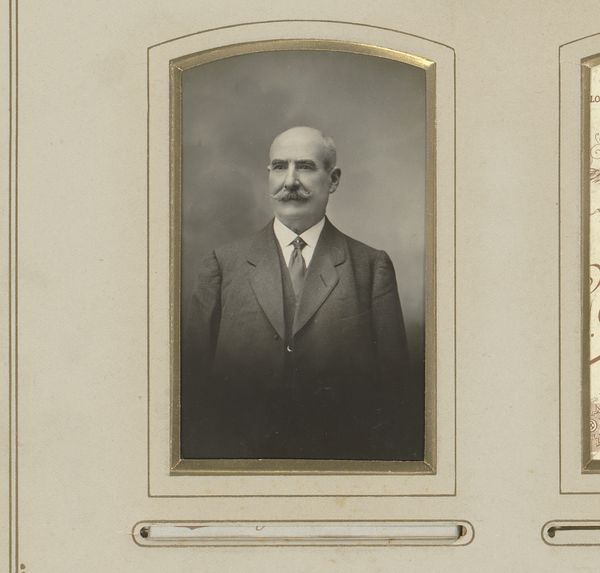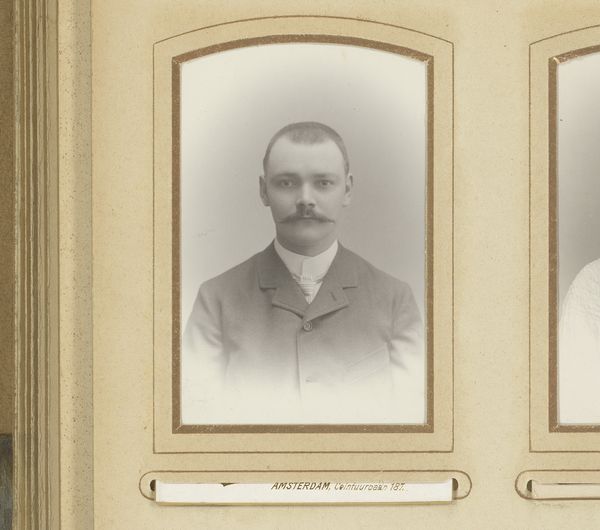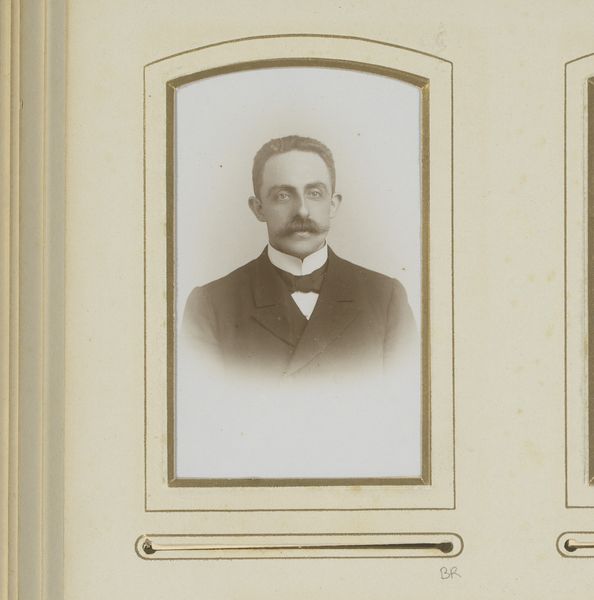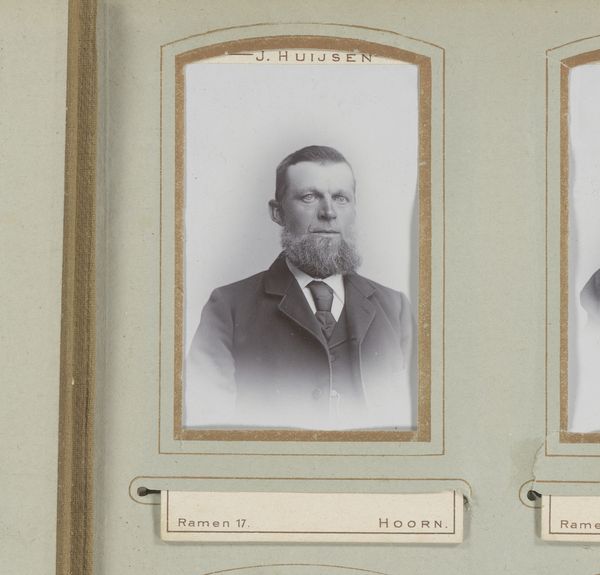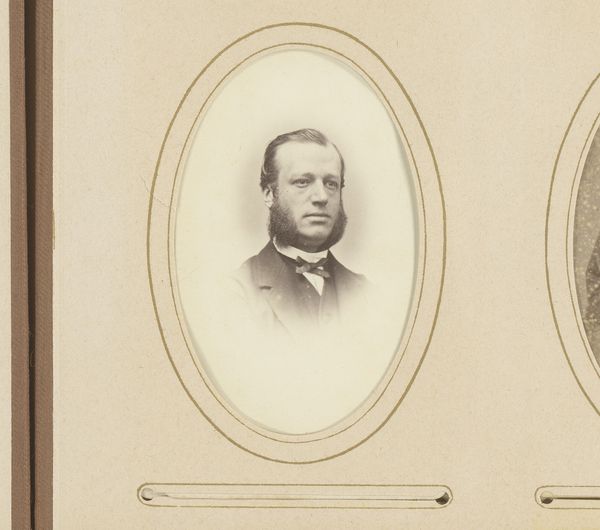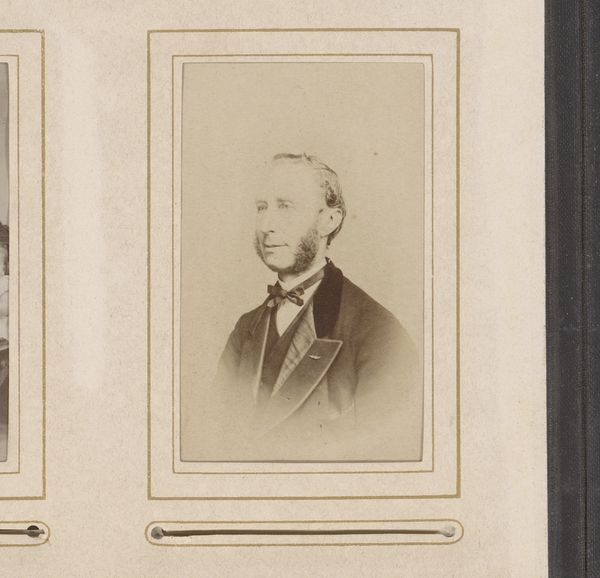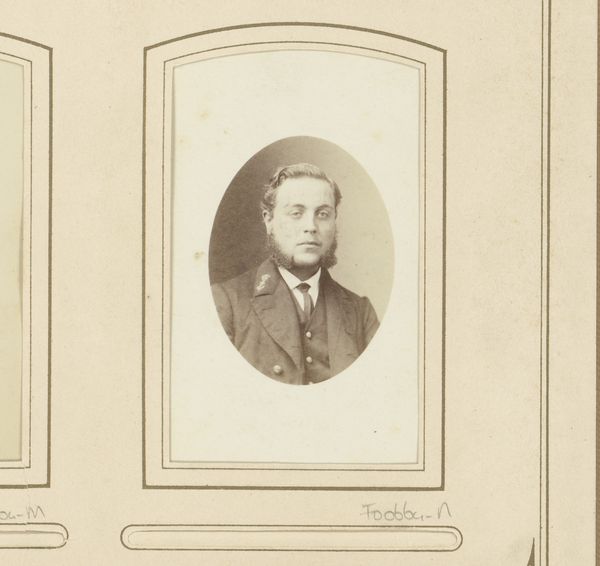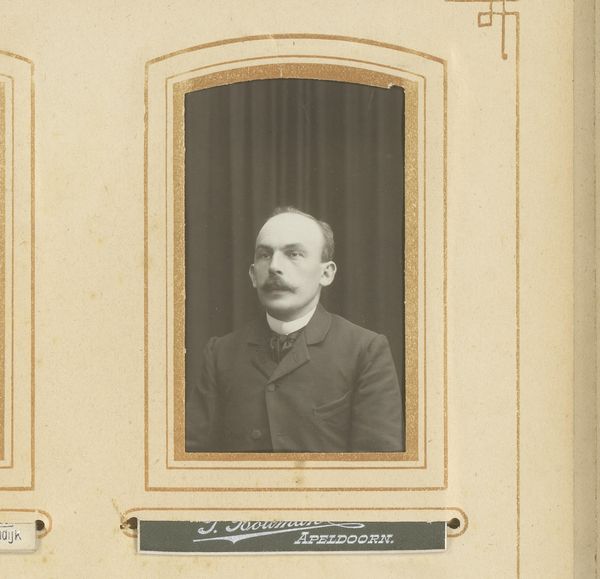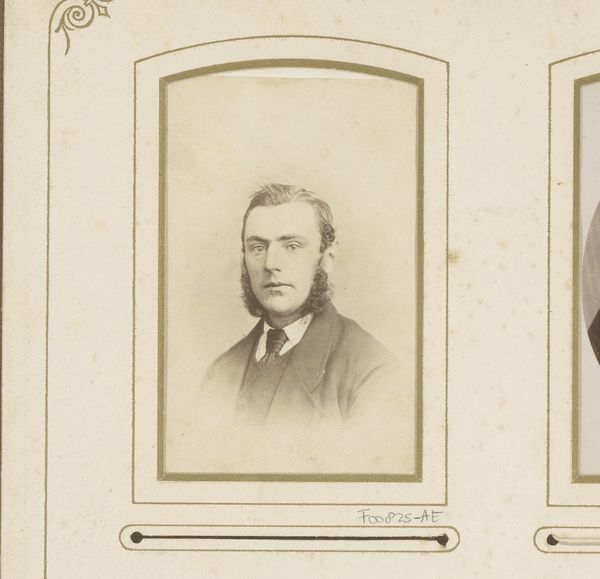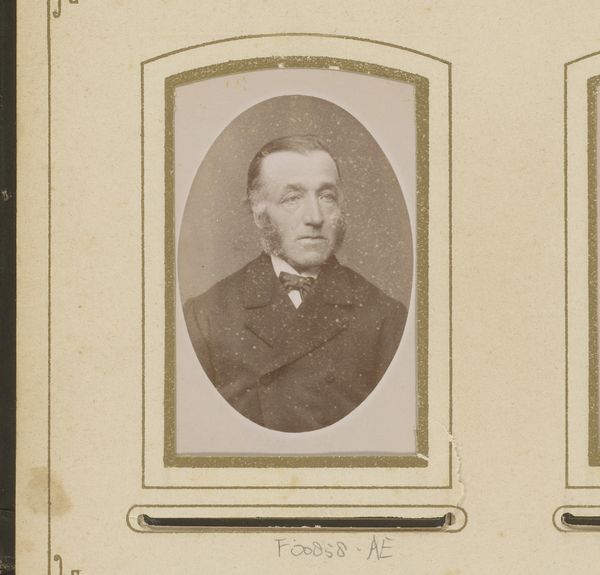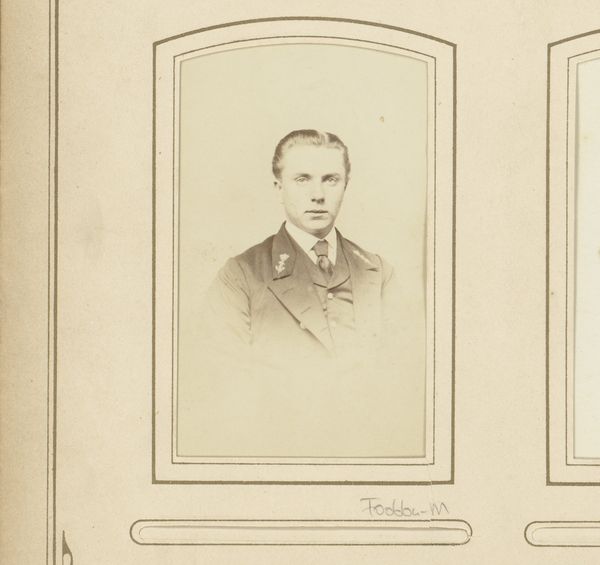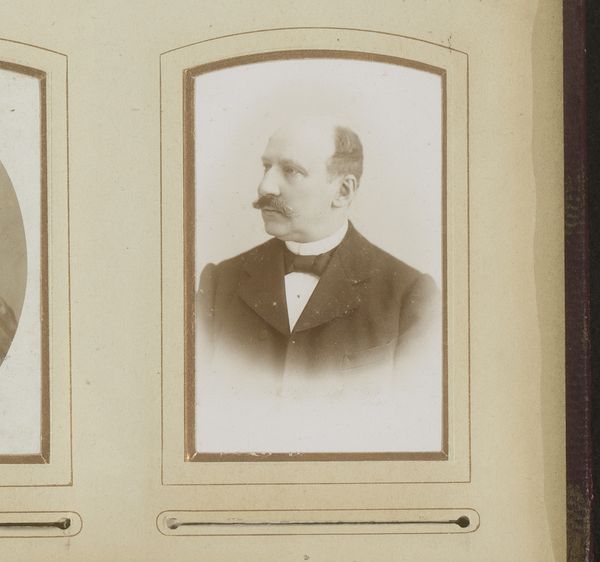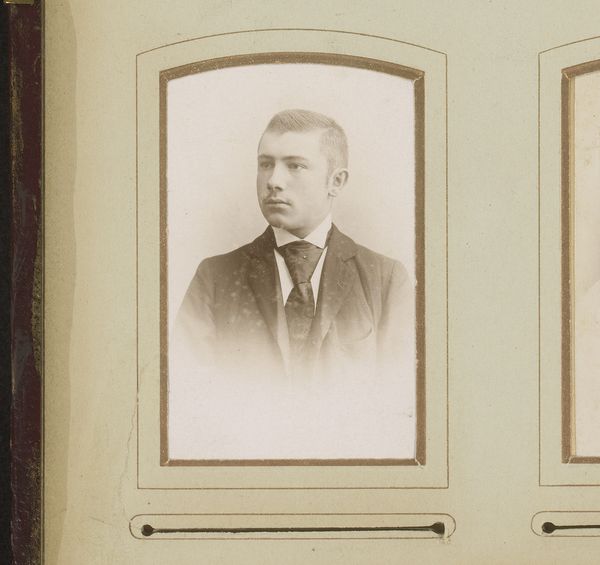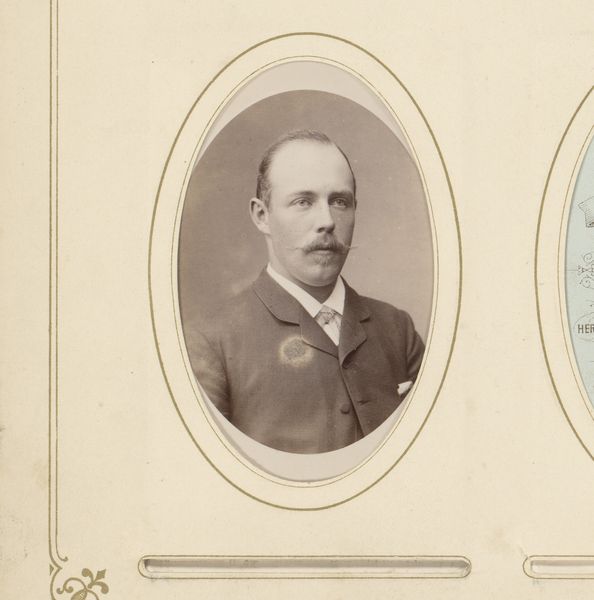
photography
#
portrait
#
photography
#
geometric
#
academic-art
#
realism
Dimensions: height 78 mm, width 46 mm
Copyright: Rijks Museum: Open Domain
Editor: Here we have a work entitled "Portrait of a Man," a photograph dated sometime between 1902 and 1908, currently residing in the Rijksmuseum. It’s striking how the photographic print is incorporated into the cardboard frame—what do you make of this combined object? Curator: It's essential to consider the context of photography at the turn of the century. Photography was becoming increasingly accessible, but these framed portraits held significant value. The materials—the photographic emulsion, the specific paper stock, the cardboard mount with its geometric details, and the ink of the photographer’s mark – they all point to a striving for permanence and respectability. Consider also who is being portrayed? Editor: A middle-class man, it seems, with his pinstripe suit. So, the materiality of the piece elevates the status of the sitter, as well? Curator: Exactly. This isn’t just a fleeting image; it's a carefully constructed commodity meant to signify status and commemorate an individual life through industrial means. The production of such items allowed broader society to participate in the economy of symbolic goods that had previously been exclusive. The material itself serves this intention. Is it successful? Editor: I hadn’t thought about it like that, about photography and manufactured status. It seemed very straightforward, but you've made me think about the economic and class elements tied to photography in that era, that is definitely relevant here. Curator: Understanding art is always a balance. This materialist perspective allows us a more profound analysis. Editor: Indeed. Seeing the portrait not just as a representation, but as a carefully constructed material object tied to its era of mass production helps appreciate it much better. Thanks!
Comments
No comments
Be the first to comment and join the conversation on the ultimate creative platform.
